You have "leaky mind", you are like a person who is holding a hundred small balls in his hands trying not to drop them, while also balancing on a tightrope. A real feast for anxiety.
Why does habitual thinking about planning and doing tasks increase your anxiety?
Reason 1: "Do as much as you can"
We always want to do more than we are able to do. Tons of factors affects our desire: planning mistakes, excessive self-expectations, social pressure, an unhealthy cult of productivity, perfectionism. It feels like if you do not schedule a hundred tasks every day, it means you are lazy, you waste valuable time, that you do not use your potential to 100% and lose productivity.
This mindset increases anxiety. Anxiety is breathing down the neck of people with overloaded to-do lists for the day. No wonder you find it impossible to do all the tasks by the evening. You put them off till tomorrow and add them to the tasks in another endless list.
Reason 2: "Plan and decide here and now"
Anxiety increases with the constant need to decide what task to do next, what can wait, and what requires immediate attention. If you have to make decisions remotely, then even in the middle of the working day your cognitive abilities (and your mood in general) will be flagging.
Reason 3: "Do it all at the same time"
Multitasking is one of the worst traps of the modern attitudes toward work. It seems that if you do several things at the same time, you will be able to do more. But people by nature just cannot combine tasks. In multitasking your focus always jumps from one process to another.
Sometimes you have to switch from one task to another every second. Thus, your fatigue grows and concentration decreases. Multitasking exhausts you and reduces your productivity.
How to change your approach to reduce anxiety
1. Don’t take more than your brain can hold.
For many, this is "Mission Impossible". Evaluating future tasks, we make planning mistakes; we almost always think we can do things faster than we can. "Future me will handle everything brilliantly" is a traditional cognitive bias.
To help not to overestimate your abilities, look at the situation metaphorically. Your working memory has a limited capacity. Researchers have found that a person can effectively process no more than 3−5 tasks a day. That is, in your brain, you only have a few slots per day in which you can put projects.
Within a project, there may be groups of smaller tasks. For example, a writer may have the project "Write an article". The project includes smaller tasks — collect material, prepare a draft, edit the introduction, etc. All of them are steps toward the main goal of the project — write an article. So, they are in one "slot". It would be a mistake to consider only work tasks while forgetting everyday life tasks which also take room inside your mind. It would be better to group all the tasks for the day into projects and see how many you have — if there are more than 3−5, it’s clear you should downsize your to-do list a bit.
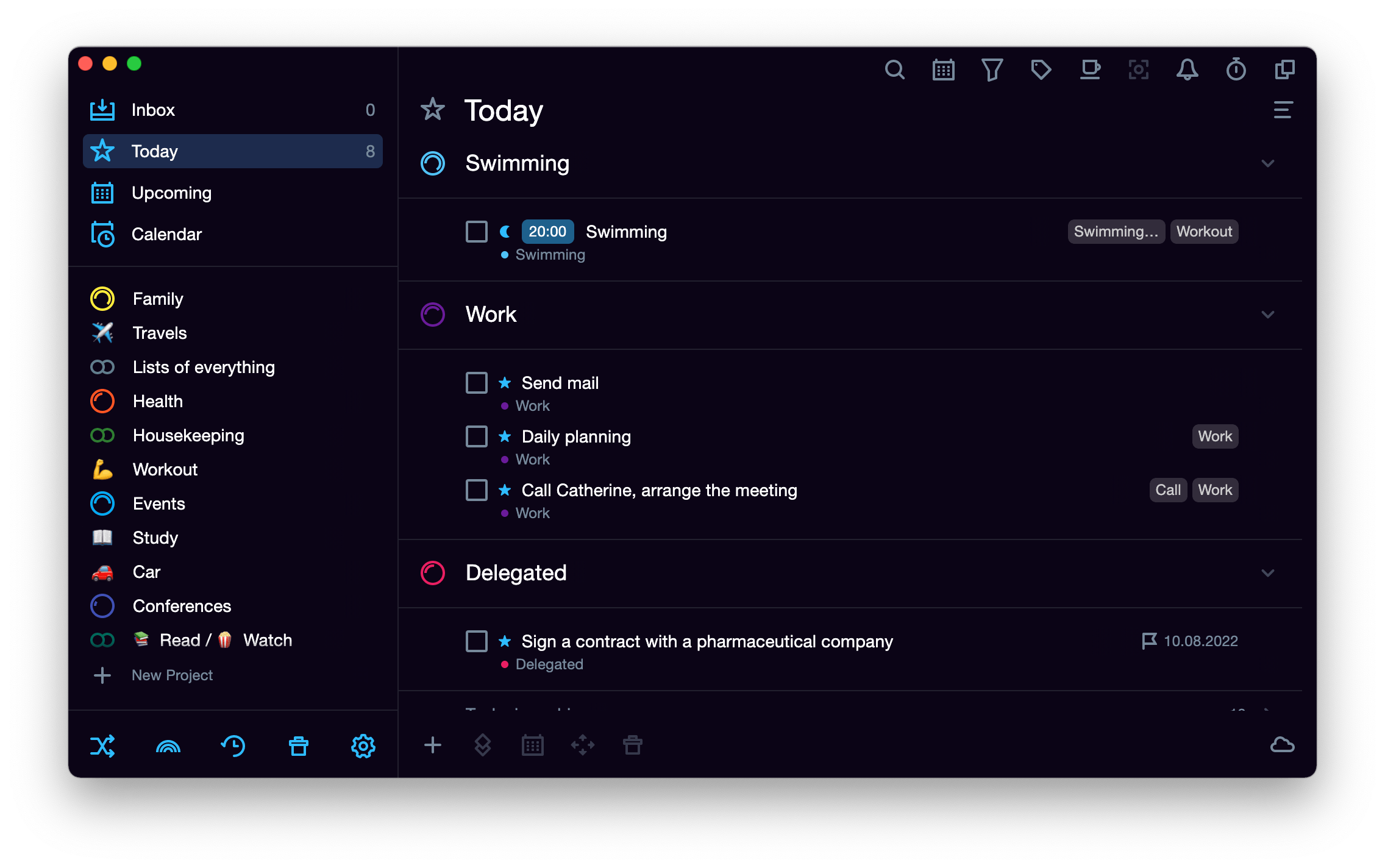
2. Do not plan on the go
You will cope with daily tasks more easily if you allocate some special time for planning. Avoid the idea of "I will start doing my things and, in the process, I will decide what to do and how to do it." Planning and doing are two completely different modes of brain operation. It is more efficient to have special time for each instead of combining them.
Another simple metaphor is that if you want a software program to work successfully, first you need to write it, and then run it. But it would be ridiculous to write it while trying to run it.
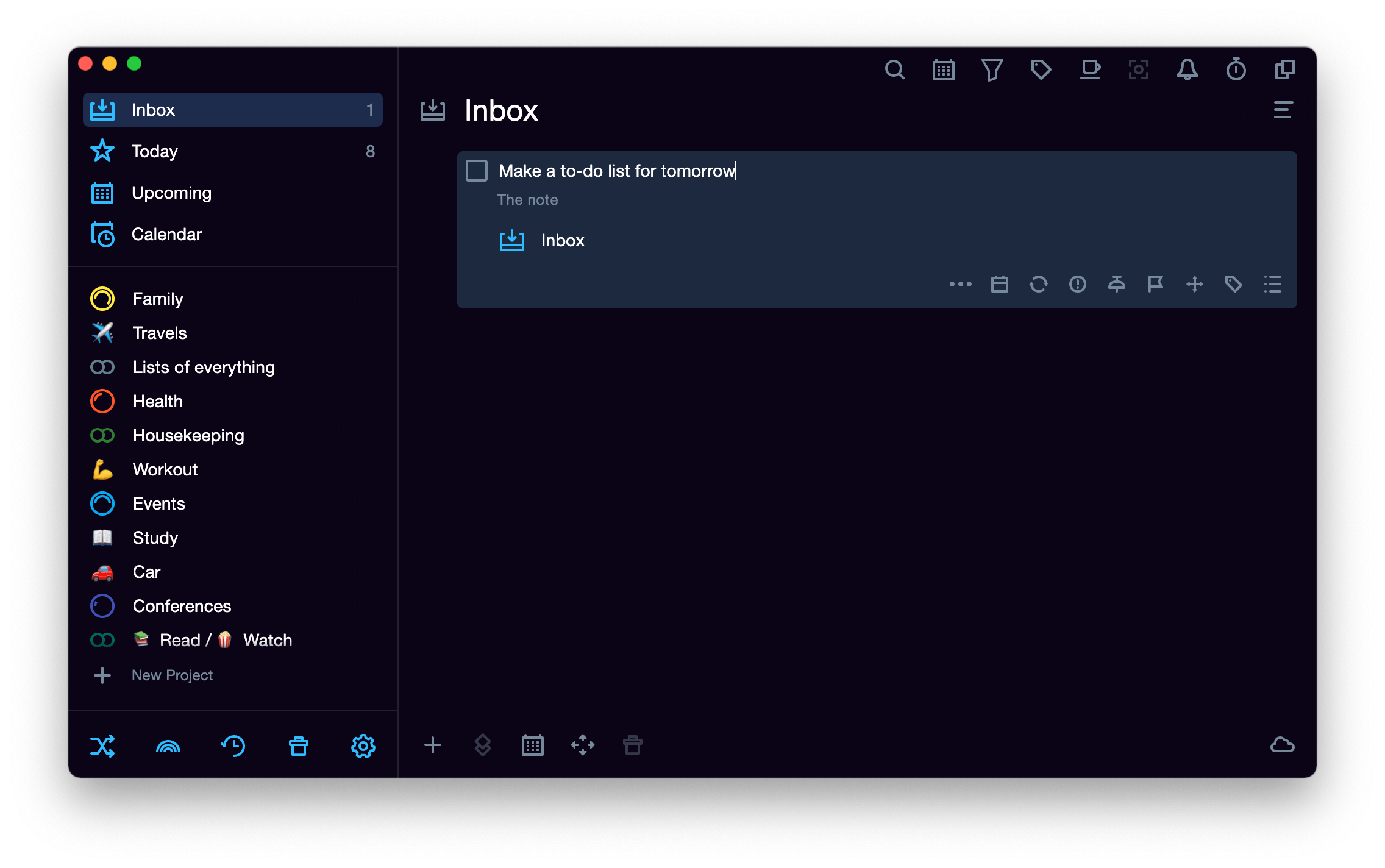
3. Do the most difficult and meaningful tasks first.
Instead of spending your day under the pressure of postponed tasks, start with the hardest one. There are at least three reasons for this:
- At the beginning of the day, you have more energy and concentration, so you can finish a difficult task faster and more efficiently.
- If you start with small tasks, then there is a big risk of getting busy with them for a long time and at the end of the day you can’t find time and energy to do the priority tasks which will be a burden for you and cause anxiety in return.
- Having completed the most important tasks, you will get a powerful boost to your motivation, on the back of which it will be easier to finish the day productively. There is nothing more beautiful than the feeling that this is only lunch time and you have already finished the main thing, and after lunch you can continue to work with no fuss in a relaxed fashion.
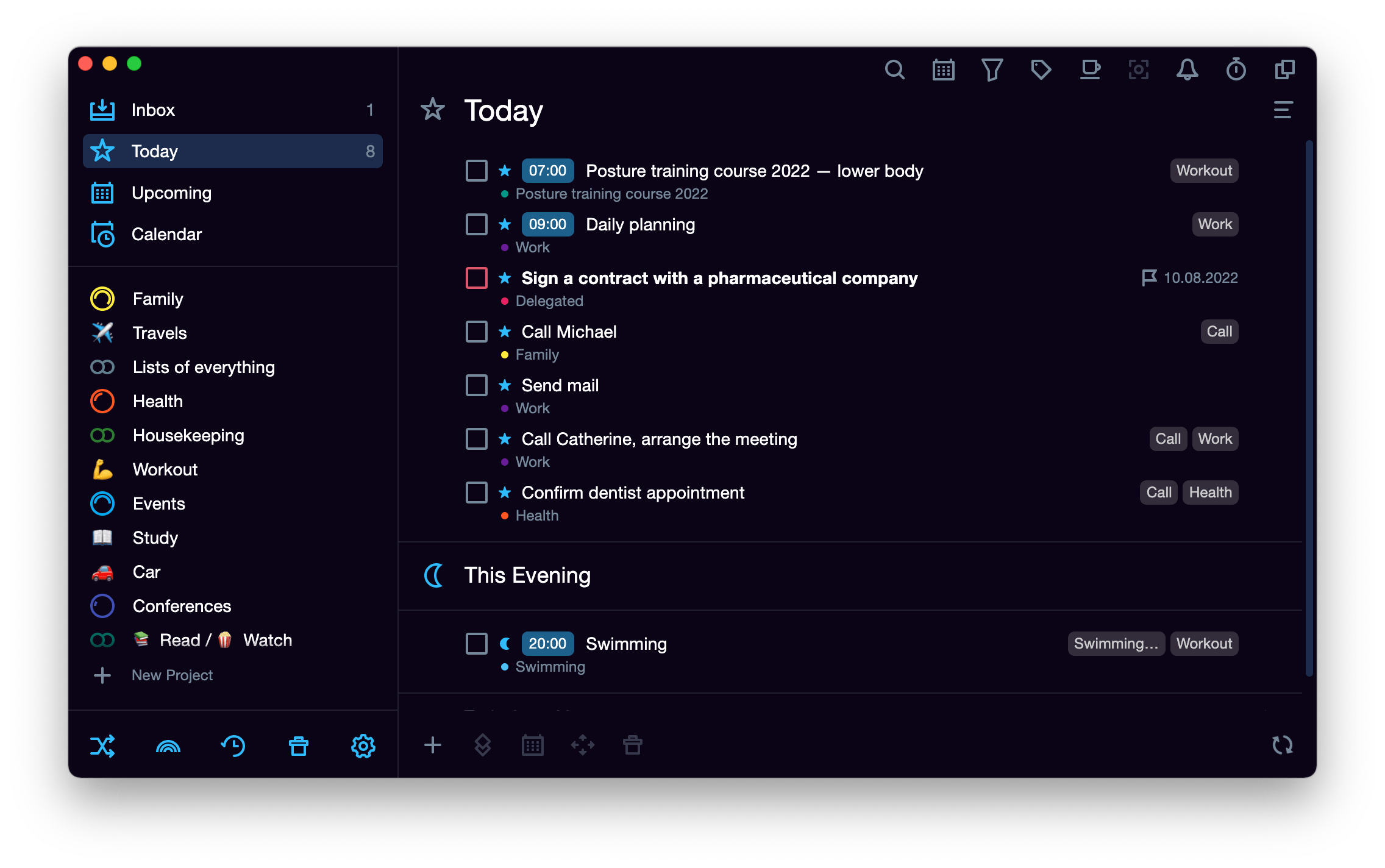
4. Visualize milestones and progress
A checklist with checkmarks or a kanban with a phased transfer of cards will help you see what you have already done, what is in the process, what needs to be discussed with other people, etc.
Visualization is a great way to reduce anxiety or that feeling of being lost in a bunch of tasks. They do not spin in your head but are displayed on the screen and you can check the list at any time. In addition, ticking the box next to a task is always nice and creates the atmosphere of a game.
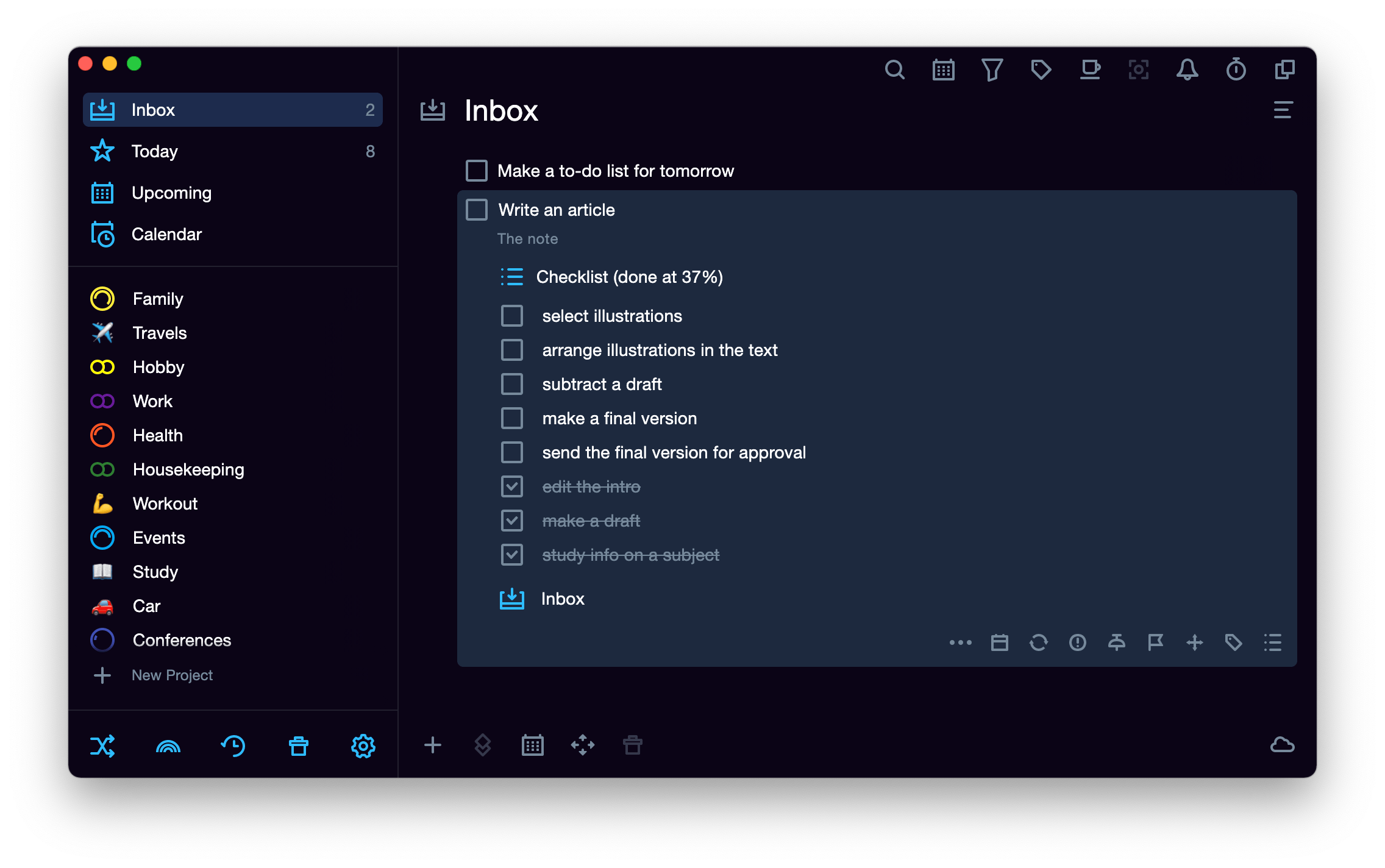
5. Split tasks into categories and prioritize
When you’re bombarded with a bunch of small tasks, they all seem important and grab your attention. Your brain perceives your to-do list as a list of equally important tasks that cannot be done all at once. And this is a recipe for panic. That is why you should prioritize and group tasks the way that suits you. For example, you can split your inbox tasks into the following categories:
- The most urgent tasks. They are the most important tasks at the moment and cannot be postponed in any way. It is better to deal with this group in the first place, to allocate the main and most productive time of the working day to it.
- Daily small tasks. These are your routine tasks that you can’t do without. For example, check mail, send documents, exchanging the messages in your work chats. It doesn’t take much time if you keep it under control and set aside a special time during the day when you can focus on them and quickly complete them one after the other.
- Irregular but important tasks. These are tasks that you have to do from time to time. These tasks do not require constant attention but make you worry that you might forget them. Make a separate list for such tasks, put reminders on those with dates, and just look through the rest from time to time keeping your finger on the pulse. This will help clear your head.
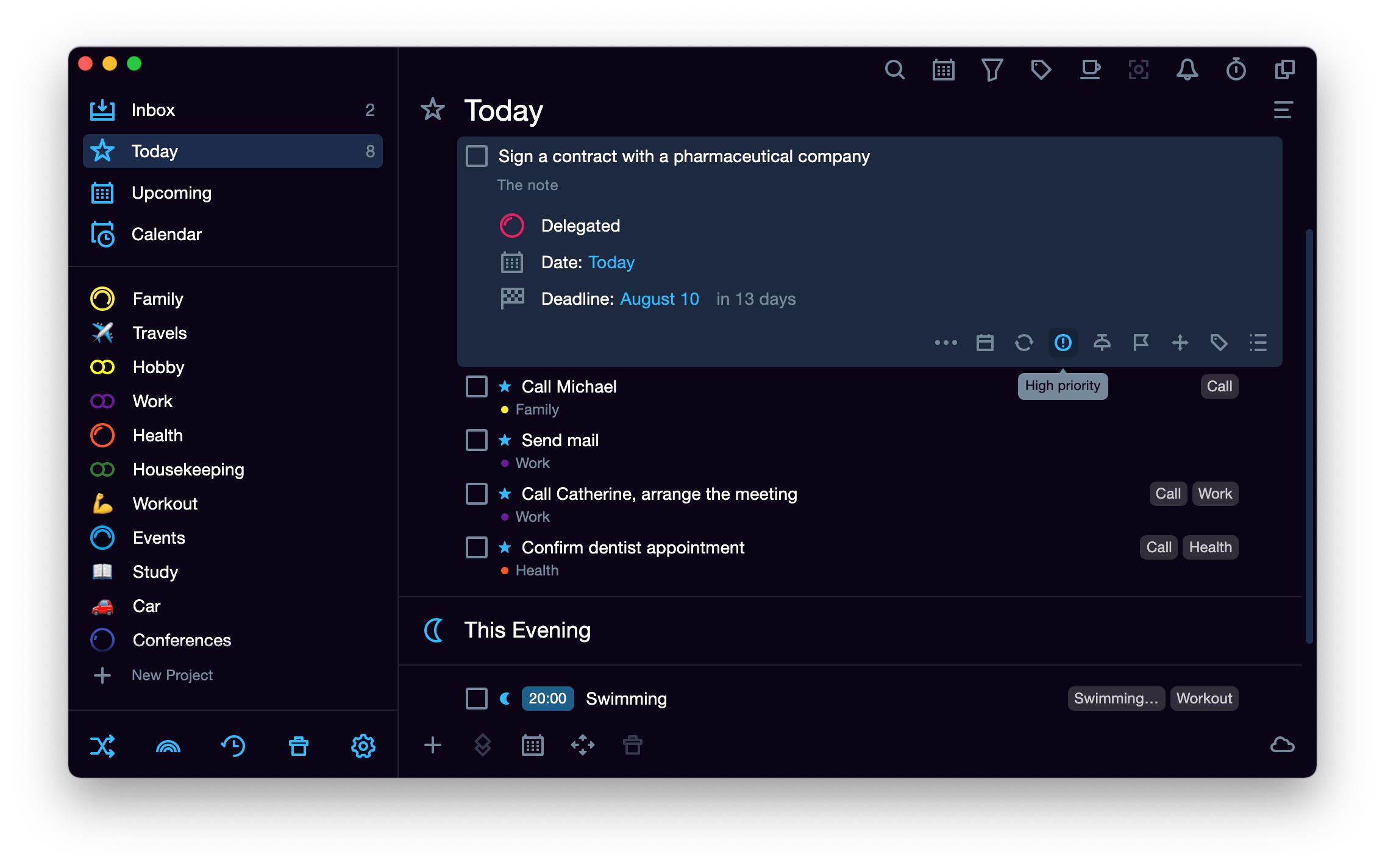
Summary
It is normal to feel the weight of the tasks on your shoulders and panic at first. But then you should act carefully. You CAN do your tasks and reduce your anxiety. Do not neglect planning: allocating half an hour for it will save a lot of time during the working day and save you from stress. SingularityApp will help you: it is not just a task tracker, but a powerful scheduler with many functions for taming chaos.





